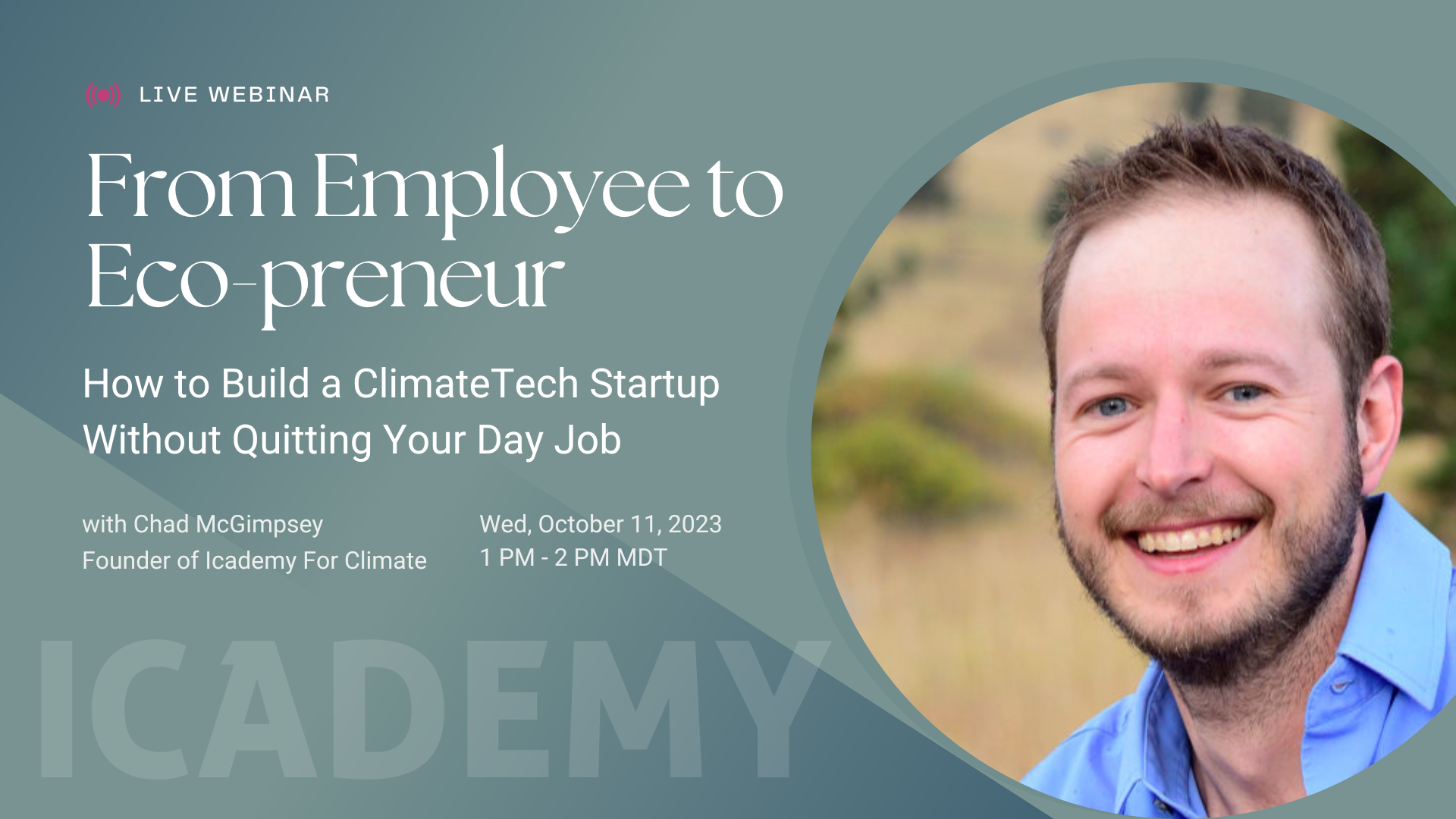This is why your startup will fail
My advice for 95% of the founders I meet is to go back and do customer discovery. Think you're part of that minority that doesn't have to? You're wrong.
Your customers don't care about you or your vision; they care about solving a problem they have. If you're having trouble finding product-market fit or are just starting out, read on to find out why problem discovery is essential to your business. You'll find out how customers think, how to unlock their secret motivations, why being open is the key to success, and why pivoting quickly is the key to your startup's success.
You've got a good idea, now let's take that idea to impact.

Customers are selfish
So you came up with this fantastic idea, you have a grand vision, and you're so excited to make it happen. Guess what. Your customers don't care.
Your mom does, and so does your husband. But they love you and will do anything to support you. Your customers on the other hand aren't interested. Why? Because I bet you've only talked to a handful of them, and you asked them questions about your fantastic new product.
So what's the harm in that? They liked the idea and there's another company doing a similar thing in another market. That's got to be validation, right?
Wrong. Your job as a founder is to find a problem that your customers are willing to pay you to solve. How do you know if you've found a significant enough problem for your customers if you haven't fully investigated it? You need to get out of your own bubble and interview potential customers.
How you can unlock the secrets of your customer's motivations
People purchase products to fulfill some kind of need; to solve a problem. Think about this for a second... what was the last thing you bought and what problem did it solve for you?
I've played this game hundreds of times and have yet to find an outlier. There's always a motivation for purchasing something, which could be basic (i.e. I'm hungry so I bought a burrito), or emotional (i.e. I bought those diamond studs because they make me feel pretty). Here's a secret: people want to talk about their problems and they want to have those problems solved. So go and talk to them! You'll find that if you're on to a significant problem, your customers will open up to you not only about how they see the problem, but how they've tried to solve it already, and most importantly, why it's such a significant problem.
When you have these conversations, it's important to never bring up your solution and just focus on the problem. With Icademy, you'll get training on conducting problem discovery interviews to unlock the secrets of your customer's motivations based on tech startup best practices.
Have an open mind
The key to finding product market fit for your startup is to reverse your thinking: you need to try and invalidate your hypothesis.
We all have assumptions when building a company that turn out to be false. In my first startup, a greeting card marketplace, we just assumed that people wanted to buy paper greeting cards online and that if we got the content they would come. But the market determines whether or not your product will succeed, which means that you have to be open to solving different problems in multiple ways to determine what the market wants. By having an open mind and testing your hypotheses in a scientific manner, you can quickly pivot when you have evidence that something is not working.
When conducting problem discovery interviews, ask open ended questions and follow threads with what, why, and how questions. Dig in when you notice emotion and let the conversation go where it goes. Look for related problems and investigate whether the problem you've identified is the most important one for the person sitting across from you.
Pivoting is a success, not a failure
Most founders feel that pivoting is a sign that they've failed. Their idea idea wasn't good enough or they did something wrong. I say it's a success.
I can pretty much guarantee that whatever idea you have at the moment isn't going to be exactly what you're working on in a year. Maybe you'll do a complete 90-degree turn, or maybe you'll switch customer segments or try a different business model. Determining if something is working or not and then quickly pivoting is they key to your startup's success. Remember, the market determines if your solution is viable--not your own determination or grit. So the quicker you find product-market fit the better.
When you embrace the fact that there are multiple solutions to the problem you've fallen in love with, you open yourself up to determining which solution is the best one. Your job is just to figure out what combination works. With Icademy, you'll craft a mindset and build habits that will make pivoting to success second nature.
How Icademy can help you take your idea to impact
Icademy is a holistic program designed to give you the tools & resources you need as an early-stage founder, a close-knit group of peers to support & challenge you, the mentorship to keep you strategically aligned, and the community of ClimateTech experts to take your idea to impact.
You want to do your part to combat climate change, and with Icademy, you'll have a significantly increased chance at being successful in your endeavor. Enter your email below to learn more and get notified when our next founder circles begin.
 By
By


